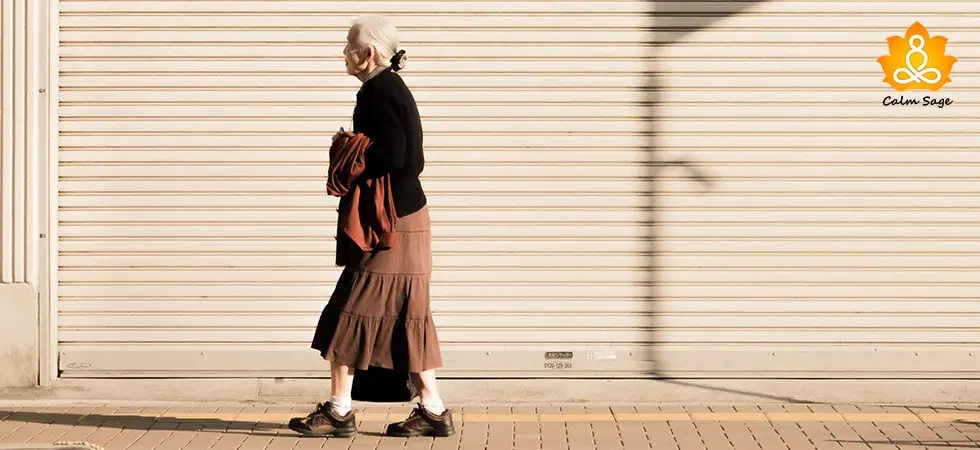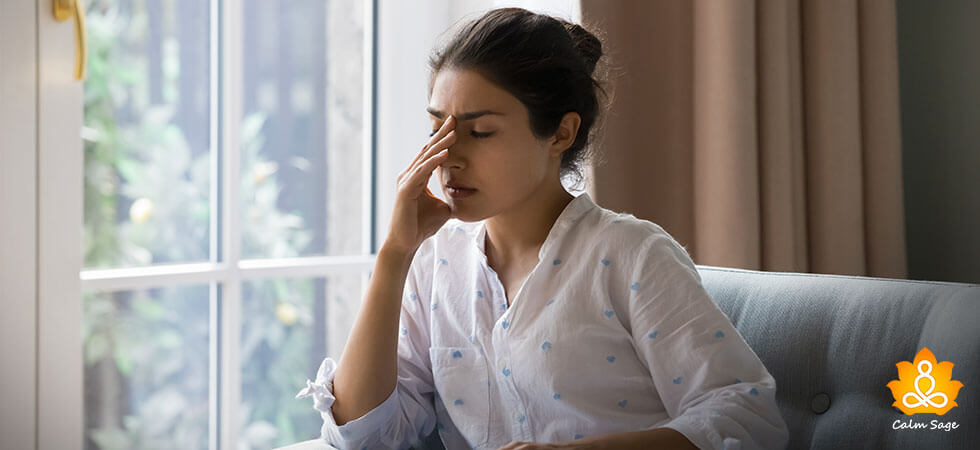“Why Do I Over Apologize?” And How to Stop Over Apologizing

If you slip up and make a mistake, it’s natural that you’ll apologize for it too. Saying “sorry” after all is the righteous thing to do when you’re at fault. However, if you’ve ever apologized when someone else made a mistake, for example, bumped into you, then it may be an instance where saying sorry isn’t going to help you. This kind of constant apologizing could be a sign that you’re used to over-apologizing.
Apologizing isn’t wrong but a harmless way of accepting your mistake and taking responsibility for it, yet when you constantly apologize for even the smallest of inconveniences, then it could be a sign of something more.
It is believed that over-apologizing is a sign of anxiety or trauma response. But how true is it? Why do you over-apologize? Could there be valid reasons for this behavior? Or is it just a natural response?
Let’s take a look at what over-apologizing means, why you constantly apologize, and how to stop over-apologizing.
What Does Over Apologizing Mean? With Examples

When you overuse the word, “sorry” even though there is no need for it in the first place is what we can define as over-apologizing. Here are some examples to help you better understand what over-apologizing means;
- When you’re served the wrong dish at a restaurant and you say, “I’m sorry, but this is the wrong order.”
- Saying, “I’m sorry to disturb you but I have a question…”
- Apologizing on someone’s behalf by saying, “I’m sorry for their rude behavior. They are usually not like this…”
While saying sorry in these instances might be polite but when it becomes a habit to say sorry all the time even though you did nothing wrong is something of a concern that you shouldn’t ignore.
Let’s see what reasons cause you to constantly apologize…
Reasons Why You Over Apologize
1. You’re a people pleaser: You constantly say sorry to please people and want others to see you as polite. You’re overly worried about what impression you make on others and don’t want to disappoint them. You over-apologize because you want to please others.
2. You have low self-esteem: Because of your low self-esteem, you think not too kindly of yourself and constantly worry that you’re doing everything wrong. So, to compensate for what you think is being too much or asking too much, you over-apologize.
3. You’re a perfectionist: Perfectionists often hold high standards for themselves and because of that they think that they’re constantly failing. If you over-apologize then it could be that you have high standards and feel that you’re not good enough and need to apologize for that.
4. You feel insecure: You may also engage in constant apologizing because you feel insecure about yourself and don’t know what to say. You say sorry too much to make your discomfort go away and make others feel comfortable.
5. You take others’ responsibility on your shoulders: Another reason why you over-apologize could be that you’re used to taking others’ mistakes on your shoulders. You feel like other people’s mistakes are yours to fix so you apologize on their behalf.
6. It’s become a habit: Yes, when left unchecked, your over-apologizing can become a habit and a very unhealthy one at that. You’ve been saying sorry too much over the years that now it’s become an unconscious habit and an automatic response.
How Does “Saying Sorry Too Much” Affect Us?
Anything in excess can be unhealthy, and the same applies to apologizing too. When you’re used to saying sorry all the time, it cancels out your genuine apology. Over-apologizing also makes you look less confident in yourself. It could also be interpreted as an act of self-criticism because you’re admitting that you’re the one to blame. This eventually makes you lose your self-worth.
Did you know that constantly apologizing in a relationship or in general can be linked to mental health conditions such as;
- Depression
- Social anxiety
- Generalized anxiety disorder
- Obsessive-compulsive disorder
- Borderline personality
- Post-traumatic stress disorder
Over-apologizing is also a common trait in people who prefer codependent relationships. If you’re constantly saying sorry then it could also indicate that you have poor boundaries and have an unhealthy habit of “fixing” others’ problems for them.
When is it something more?
Excessive apologizing is a common trauma response that stems from abuse. It is often considered a survival or defense mechanism to protect oneself from harm – verbal or physical. Trauma survivors learn to make themselves as invisible as possible and to keep themselves safe, they engage in excessive apologizing.
How To Stop Over Apologizing?

1. Replace “Sorry” With “Thank You”
One of the best ways to stop over-apologizing is to replace your “sorry” response with a “thank you” one. Here’s what you can say instead of “sorry”;
- “Thank you for your patience”
- “Thank you for your help”
- “Thank you for reminding me.”
- “Thank you for your time.”
2. Pause And Take Noteof Your Intention
Whenever you feel the need to say sorry, pause and reconsider your intentions. See whom, when, or why you want or need to say sorry. Bring awareness to your thoughts and feelings, they’ll help you understand the motive behind your actions. See if you’re saying sorry because you’re anxious or if the reason is something else.
3.Consider Your Need to Apologize
Again, take some time to see why you need to apologize. Did you do something wrong? Hurt someone? If yes, then it’s OK to say sorry, but if you didn’t do anything wrong or if your actions did not hurt someone, then ask yourself if you truly need to apologize for that. You have to understand that the intensity of the mistake should also match the way you apologize.
4. Remind Yourself That You’re Safe
If your over-apologizing is a trauma response, then here you can remind yourself that you’re safe and don’t need to make yourself small to feel safe. It’s OK to stop feeling responsible for other people’s emotions and feelings. It’s OK to consider your feelings now.
However, if you’re in an unsafe situation, then make sure to reach out to your nearest emergency number or dial the National Domestic Violence Hotline at 1800-799-7233.
Wrap Up
Apologizing when you’re in the wrong is the righteous thing to do, but at the same time, you need to remember that even if you make a mistake there are people in your life who love and respect you and will accept you even if you can’t apologize for everything.
It’s OK to say sorry when it is needed but it’s also OK to stop taking others’ blame on yourself when you don’t deserve it. You are not responsible for how others act, feel, or behave.
Stop over-apologizing and start being kind to yourself. Even without saying sorry so much, you’re loved, respected, and accepted. If you still catch yourself constantly over-apologizing, pause, and reconsider your actions. The above-listed ways might help.
I hope you’ll find his article helpful. If you need more advice and help, you can write to us at inifo@calmsage.com or DM us on social media. You can also comment in the section below if you have any thoughts or concerns about over-apologizing.
Until next time… Take care!





















It is beautifully explained with good observation